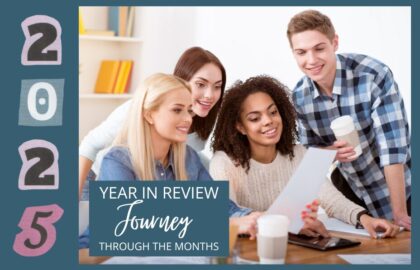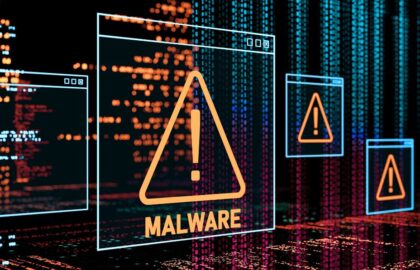Welcome to the Meet the Mentor series! In this series, we sit down with software engineers, data scientists, cybersecurity analysts, and more to uncover their unique career journeys, the challenges they’ve overcome, and the wisdom they’ve gained along the way.
Whether you’re just starting out or looking to level up, these stories are packed with practical advice, encouragement, and insights to help you navigate your own path in tech. Each article includes a mentor snapshot + links to follow their work, their video interview, and their Q&A transcript with links to any references.
Follow along and discover the people shaping the future of tech—one student at a time!
Meet Jean Luis
After taking his first computer science course, Jean fell in love with coding and didn’t look back. His passion led him to where he is today, leading a team of eight as a Software Engineering Manager at one of the largest telemedicine providers in the world. On an average day, Jean is working on scaling eligibility, managing APIs, and leading his team as they transform large healthcare data into meaningful data points their systems can work with.
In his Meet the Mentor interview, Jean shares that he enjoys seeing people reach their potential (or go beyond it!). His tech journey has proven that hard work pays off, and as a mentor, he aspires to help others become their best selves.
Snapshot
Current Job Title: Software Engineering Manager
Current Employer: Teladoc Health
Past Employers: Ultimate Software, EarthLink
Experience: 5+ years in Software Engineering
GitHub: https://github.com/jlurena
LinkedIn: https://www.linkedin.com/in/jlurena/
Technical/Professional Skills: Team Management, Architecture, and System Design
Teaching/Mentoring Experience: He has experience teaching other bootcamp courses.
Words of Wisdom: “Be curious, hands on, committed, and passionate about your work.”
Favorite Part of Your Job: “Solving everyday challenges.”
Meet the Mentor Interview with Jean Luis Urena
Q&A Transcript
Introduction: Who are you and what do you do now?
- Can you tell us a bit about yourself and what you’re working on these days?
- My name is Jean Luis. I normally go by Jean as well. I’m a Software Engineering Manager at Teladoc. I have eight direct reports. I work with is a lot of big data, formatting and transforming data in a meaningful way so that our systems can work with it. And most of the data tends to be things that deal with healthcare since Teladoc is a telemedicine company. That’s pretty much what I do with Teladoc, work with a lot of data.
- Can you tell us more about what kind of data are you working with specifically?
- Being the biggest telemedicine provider in the US and the world, we have a lot of sensitive data such as PHI and PII — PHI being personal health information, PII being personally identifiable information. We get data from our clients, including names, health plan IDs, date of birth, and batches of files from clients such as Aetna and UHC. Clients may send us files in different formats. My team maps a way to read what they send us into a more generic format that our systems can understand, parse it, and work with, so we can better service our members and users.
- How many people are you managing and what is that like? Are you juggling the people management and the implementation data science side of things?
- I have eight direct reports under me. We mostly work with APIs and leverage the data that comes in from the clients. One of my major projects is called Scaling Eligibility where work to scale our systems as the company grows. Another one is API management, where we work with our API systems — API meaning backend systems that mutate and do all the logic behind the scenes for things such as requesting a visit, talking to a doctor over the phone, or registering under our company to get telemedicine benefits. On a day-to-day basis, I would say it’s mostly leading the team, ensuring that projects get done well, making sure the team is motivated and on track with their projects, and helping them out wherever they may need help (overcoming roadblocks, understanding business requirements better, or filling gaps they may have in whatever project they’re working on).
- Is there anything exciting happening at work that’s new or refreshing? Maybe something with AI that’s kind of changing the way your role looks?
- Actually, we use AI a lot. More recently, we’ve used it to build better code. We added this tool called Cursor to do automatic code reviews which has been really helpful in catching small mistakes and things that may be better. We’ve also added AI to automatically catch bad tests or help us write better tests. We are working in the future to use AI to help us read things like health insurance cards so we can then parse them. A user could just take a picture of their health insurance card and send it to us, and we’ll be able to decipher everything from it and help them get the services that they need.
- What are the key skills crucial to the workplace now?
- Well, key skills would be to always stay on top of the trends; not just trends, but rather continuous learning. You want to stay on top of things and keep yourself motivated, learning as you go. It’s not just going to school and then that’s it. You have to continuously stay on top of things and stay relevant. I think that would be the number one skill. Number two is just being passionate about your work. If you truly feel like you own it and that you have impact on the business, you will work differently. You will treat it like your baby. I have many babies in Teladoc. So, those would be my two biggest skill sets.
Career Journey: How did you get here?
- Can you walk us through your career journey? How did you end up in the role you’re in, and how did you end up in the industry? What made you interested in this path?
- I was a pretty bad high school student, to be honest. I started out at community college and then pursued a business degree. Then, I realized I did not like business. It was okay, but it was not my thing. When I switched over to information technology, I took my first computer science course and liked it. From there, I fell in love and continued with it. I went to four-year school and then accepted a position at Sowela College, where I’ve been since. It was pretty exciting. I could have also taken the path of going to a bootcamp, and I honestly I think it would have been just as helpful because I feel like I learned the most by working on projects rather than taking tests. I was really good at projects, not so good at tests. I hope my career also reflects that because I started as a junior software engineer and worked my way up to management.
- What were some pivotal moments that shaped your path?
- When I switched to tech, it just clicked with me. I enjoyed the class. I think it was the professor as well. I enjoyed the professor. And that was a pivotal moment, just understanding how programming works. Career-wise, I enjoyed working a lot. I would say I considered myself a workaholic back then. I worked a lot simply because I liked coding. My managers and their managers noticed how hard I worked. The real change came during COVID when Teladoc, being a telemedicine company, saw everyone using its services and things just went crazy. It was all hands on deck for everything, and I learned a ton during that time. I learned so much and was able to take opportunities where I could lead others and lead projects. The opportunity was there, and I just seized it because I like what I do.
- Did your education play a big role in your journey?
- I liked working on projects more than anything. I also worked on a lot of side projects while I was in school. I do have to say, though, that when I was in school there was no such thing as a bootcamp. I graduated in 2018, and I was already done before I even heard of Flatiron or any other bootcamps. But the point is, projects were always my thing. The first class I took was mostly project-based, and after that, all my other computer science courses were also very project-heavy. They were usually fifty percent projects, and the rest were tests and homework. Thankfully, all of those classes were very project-heavy because I was not good at taking tests.
Lessons Learned: What have you learned along the way?
- What’s one lesson or insight from your career that’s stuck with you and continues to guide you?
- Working hard pays off, but you should also know how to celebrate your wins and make your wins known.
- Was there a moment where you faced a major challenge or failure, and how did you grow from it?
- My first big project involved building a microservice from the bottom up which was going to be very heavily used. It’s actually one of the ones I own right now. The thing with this microservice is that we were transitioning from a legacy system into this one. I came into this project about halfway in, so it was a lot to catch up on. I had a very tight deadline of about a year. The project had already been worked on for about two years. I was brought in, and they told me, “Hey, we’ve got to get this done this year.” I was like, “All right, let’s do it.” And we did do it. A lot of kinks had to be ironed out when we finally promoted it to production / when we put it out in the real world. There were a lot of restless nights, so that was a big challenge. My wife was very angry at me because I was working eighty hours a week. But at the end of the day, I think it paid off. The team and I were recognized for our hard work. To this day, everyone in the company knows what we did (the CTO, CEO, even the executives). I learned to slowly release things out instead of doing one big bang. Unfortunately, because it was a hard transition, we did not think of a good way to slowly transition, so it had to be a big bang. Looking back, I should have researched better ways to slowly release it instead of one big bang.
Mentorship: Why did you decide to become a mentor?
- How did you first get connected with Flatiron School?
- I applied to the position and was reached out to by May. I had learned about Flatiron long before I applied and had always wanted to work here. Before Flatiron, I worked at other bootcamps that were not as successful or as prestigious. I got the call and was like, “Oh, awesome. This is what I wanted.” I’ve always liked teaching, so coming to Flatiron was always on my mind. Before Flatiron, I worked at other bootcamps. I’m also a mentor at this volunteer program called iMentor where I mentor high school students. I try to help others and show them how awesome it is to be a programmer because I like it so much. I want to spread it around, and I think anyone can do it if they set their minds to it. It’s a really awesome career path, in my opinion, and I think everyone should give it a try.
- What inspired you to become a mentor (cohort facilitator)?
- I like helping others. I like seeing people reach their potential or go beyond their best potential. I like seeing people grow and become their better selves. If I’m able to contribute to that path, I’m happy for it.
- Was there someone who influenced your career path and who (knowingly or unknowingly) mentored you?
- I’ve had a few mentors unofficially. One is one of my professors from my two-year community college. He’s the one who actually got me to go to my four-year school which was Rochester Institute of Technology. I went there because he went there.
- What’s been the most rewarding part of mentoring students so far?
- Just seeing them grow and seeing how they can better themselves. I grew up in the Bronx, New York City. I didn’t grow up poor or anything, but I was not living a lavish lifestyle. I would say lower middle class, maybe. I had a single mom and one sister, and we got by. In the areas where I lived, I would notice others who did not have it as good as me. Honestly, my lifestyle was not that good, so I can only imagine. I’ve seen some of them outgrow that environment and get out of there. I’ve helped some kids I mentor, not get out of the environment, but to learn and understand how they can improve the environment they’re in and help others within their environment improve themselves as well. That’s the most rewarding part: people improving themselves and becoming their better selves.
- How do you keep your students motivated?
- I normally just check up on them. I always join the live sessions with a good attitude. This is my normal personality. I want to stay energized, and I try to be very positive. I try to encourage them to not just do what is required for the minimum, but to look beyond and try to teach themselves. [I teach them to] see how they can improve what they’re working on, like using new tools (AI, ChatGPT) to help them learn. “How can I do this better?” Finish the work, and send it to ChatGPT and ask, “How can I do this better?” Just try to keep them not just learning but entertained and interested.
- If you could give one piece of advice to someone just starting out in tech, what would it be?
- Just keep grinding. Just stay on top of things, stay on edge. AI is the new thing. Try to learn as much as you can about AI (how it works, why it works, why people like it, why it is important, and how you can improve it).
Future Focus: Where do you want to go next?
- What’s something new you’re learning or exploring right now, and why does it excite you?
- I’m learning more about AI. I’m teaching myself machine learning and more advanced topics such as deep learning and AI. I also read a lot of self-help books for managing teams. That’s what I’ve been focusing on mostly these days.
- Are there any projects or goals you’re currently working on that you’re particularly passionate about?
- During this time of year we’re busy because we get a lot of new eligibility files. January 1st is when new insurances get renewed and things like that, so this is the busiest season. I’ve been focusing more on work and making sure that our systems can handle the new load, can scale, etc. Unfortunately, during this peak season, I haven’t had a chance to work on new features that are very exciting. But this past summer, we worked on the card scanner. We worked on automatically matching names of multiple people to check if they are the same or similar, all using AI, so those have been the most passionate things I’ve worked on so far.
- Looking ahead, what’s a big dream or ambition you’re working toward in your career?
- I want to grow and climb the ladder higher. I want to be a Director, and my goal is to eventually be a tech Executive. I hope to get there by keeping myself up-to-date with technologies, becoming a better manager, building out my team, becoming a better mentor, and learning as much as I can about new technologies, including AI and machine learning.
Lightening Round Questions
- What’s something you’re listening to or reading right now? (It can be any genre and can be a book, audiobook, or podcast.)
- Right now, I’m reading this book called Caesar’s Messiah. It’s about a Messiah, and the author has a big hypotheses about how Caesar took over the Roman Empire.
- What’s one product or tool you’re into right now?
- One tool I’m into right now is this note-taking app called Obsidian. I think it is the best note-taking app in the world. In Markdown, you can automate scripts into it. It has made my life of taking notes very easy. As you can imagine, being a manager, I take notes. That’s all I do all day, so it helps a lot.
- What date does your next cohort start?
- I’m actually in one right now. I’m doing part-time Software Engineering Essentials.
- Where can listeners find you?
- LinkedIn – You can also find me in New York City, just touring and walking around!
- What made you smile this week?
- Just now, my cat was trying to fight this lanternfly on the other side of the window, and she did a full backflip off the edge of the window. It was hilarious. I wish I had recorded it, but at least I saw it.




